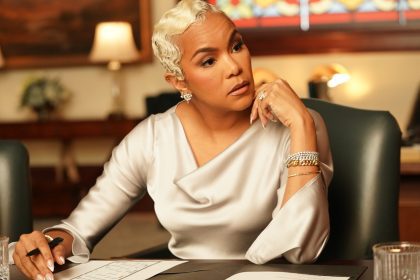Ashanti has admitted being stalked for years “changed [her] life.” The Grammy Award-winning artist’s ordeal began in 2009 and continued for nearly a decade, affecting both her personal and professional life.
“It changed my life … it’s unsettling, it’s disheartening, and it makes you question who’s the victim,” Ashanti said. The singer was subjected to unwanted attention from Devar Hurd, who stood trial for stalking her four times between 2009 and 2016, and she has reflected on the “unsettling” experience, admitting she has “hope” that it is now behind her. Stalking cases involving celebrities often receive more media attention but can be just as devastating as those affecting non-public figures.
She said on “Stalking the Stars,” the latest episode of the Investigation Discovery docuseries “Hollywood Demons”: “The feeling is hope that the rehabilitation happens, hope that he gets the message, and hoping that everything is done.” The docuseries explores the dark side of fame and the unique challenges faced by public figures.
The 44-year-old star always tries to be “gracious” with fans but sometimes the attention can be “invasive.” Many celebrities struggle with maintaining boundaries while remaining accessible to their supportive fanbase.
“I have some of the most amazing fans in the world, so I always try to be gracious, I always try to be courteous, but it does get a bit invasive,” she said. “In 2009, I was actually playing Dorothy in ‘The Wiz’ on Broadway, and my mom was getting these pictures, texts.” Her Broadway role showcased her versatility as an entertainer beyond her successful music career.
The then-unknown man expressed his desire for he and Ashanti to “be together”, sought an invitation to her home, commented on her various live performances and criticized her relationship with Nelly. Such behavior is typical of stalkers who develop obsessive attachments to their targets.
“It makes you feel a little scared. This is a red line being crossed. Obviously, my family along with me, it’s kind of affecting everyone. They didn’t ask to be a part of this,” she said. The ripple effect of stalking often extends to the victim’s entire support network, creating widespread anxiety and fear.
The messages “progressively turned into something deadly.” Experts recognize that escalating threats and surveillance are serious warning signs in stalking cases.
She continued: “He started sending pictures of my car, parked in the front of the theatre. He started sending pictures of my house, aerial shots, shots of the front door. [I thought] ‘Okay. This is serious serious now…’ We made the decision, me, my parents, my family, to kind of get the law involved.” This type of surveillance behavior indicates a dangerous escalation in stalking cases.
Hurd was arrested later that year and sentenced to two years in prison for sending unwanted sexual messages and stalking, but was released the following year. Many stalking victims find that legal interventions provide only temporary relief.
“In my situation, he was convicted, and we were hoping and praying that it was done. We felt that that was going to be it. But unfortunately, it kind of kept going on and on,” Ashanti reflected. The persistent nature of stalking behavior often continues despite legal consequences.
The man defied the no contact order in place to protect the singer and her family, sending pictures he had taken at an event with her sister Kenashia Douglas and sent a string of social media messages in 2014. Restraining orders, while important, are often insufficient to deter determined stalkers.
As a result, he was arrested again for stalking and aggravated harassment, and went back on trial. and opted to represent himself, which meant he could cross-examine Ashanti himself. This legal strategy created an additional layer of trauma for the singer.
“It’s really weird. It’s kinda like, to get what you want done, he gets what he wants, which is to be in your presence,” she said. The legal process can inadvertently reward stalkers by granting them access to their victims.
A juror took ill, which led to a mistrial, but Hurd was eventually convicted for a second time in 2016 and jailed for four years. He was allowed out of prison a year later. The legal system continues to evolve in its approach to stalking cases, though many advocates believe penalties remain insufficient.
Since this ordeal, Ashanti has continued her successful music career while becoming more cautious about public appearances and social media sharing. Her experience highlights the need for better protection for public figures while maintaining their ability to connect with legitimate fans. The singer’s resilience throughout this ordeal has inspired many other stalking victims to seek help and speak out about their experiences.














